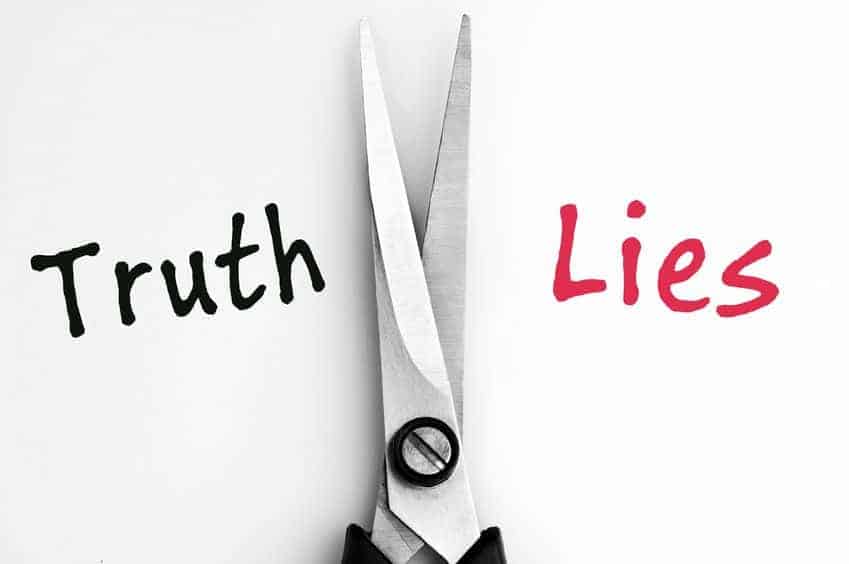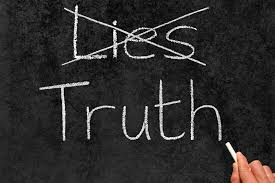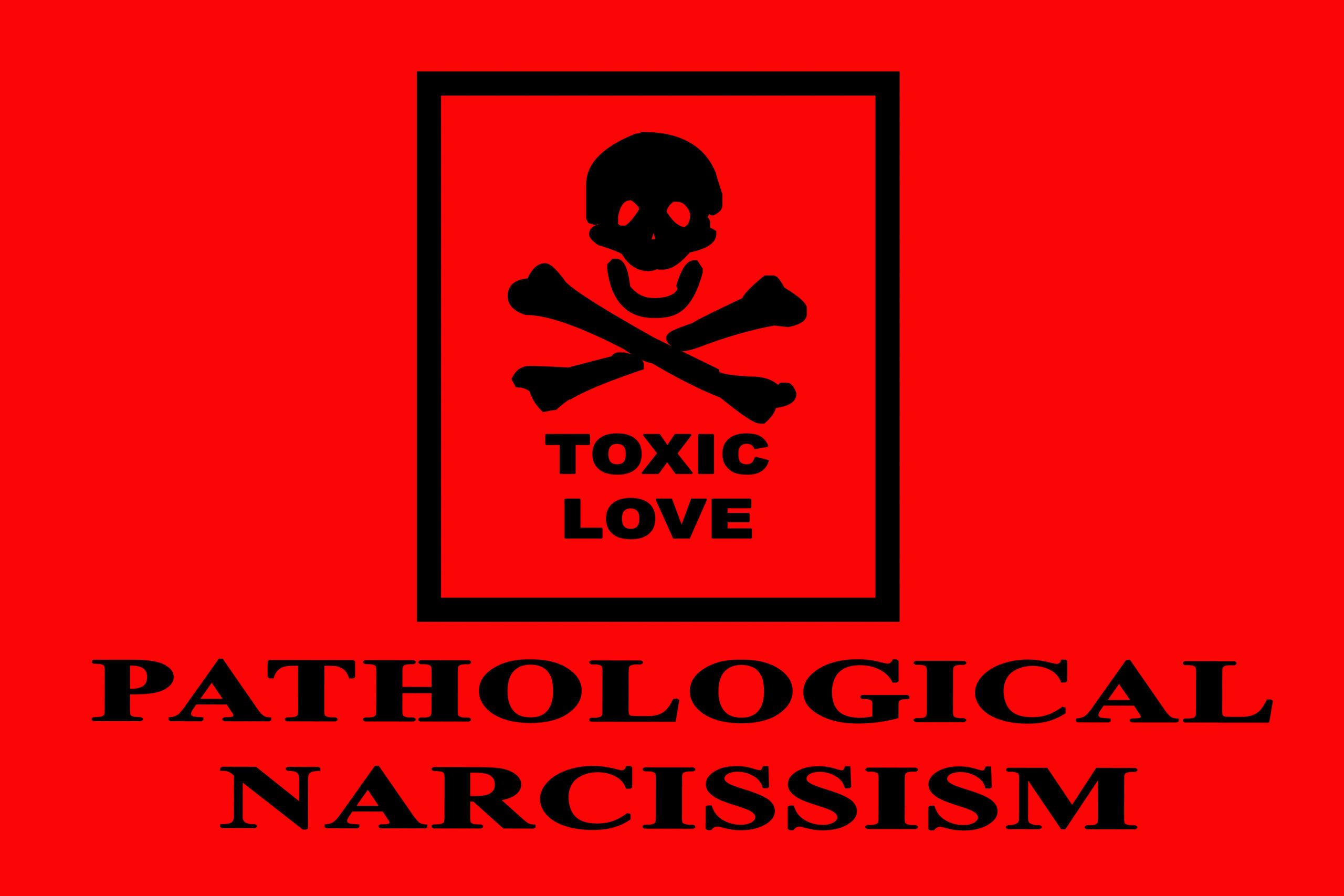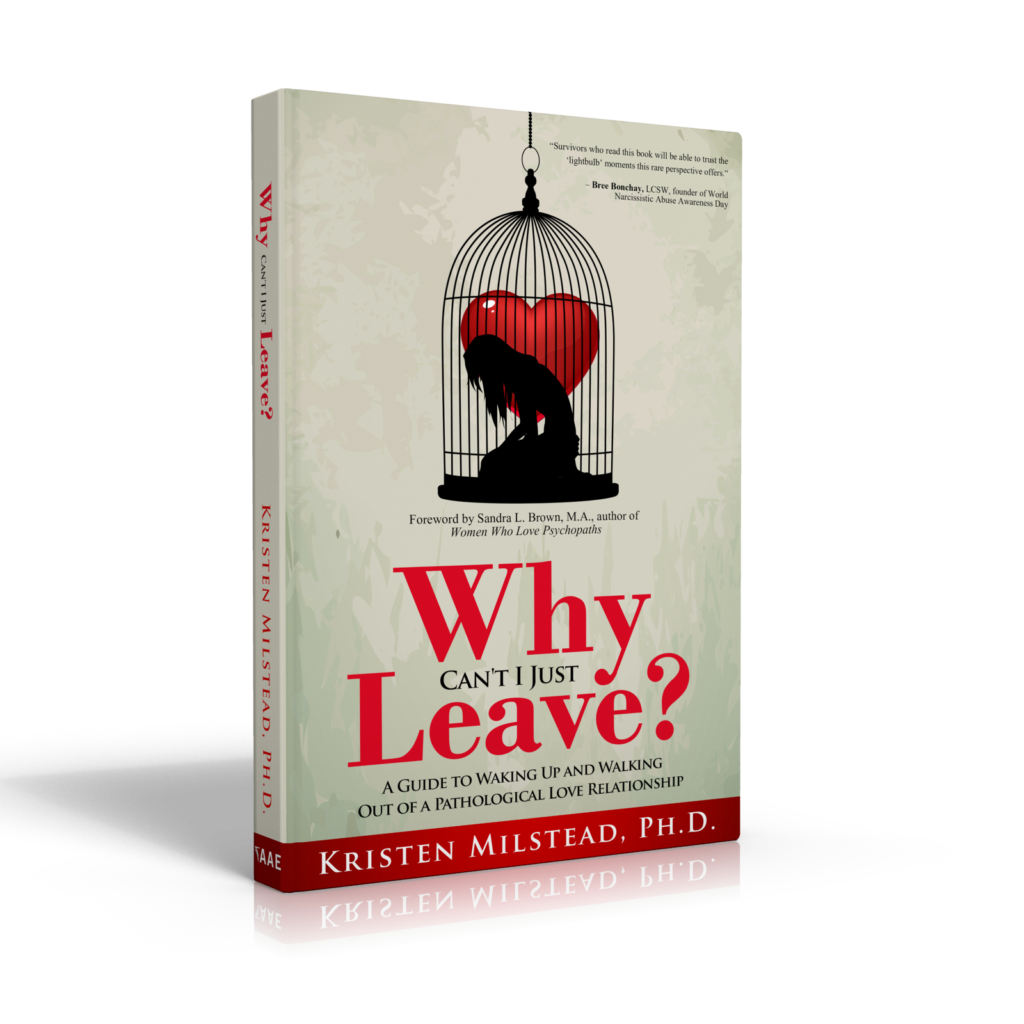Narcissist lies are weapons.
You may have asked the narcissist to account for their behavior. If you got answers at all, they likely didn’t make sense.
There’s poison in their non-answers. It seeps into you a drop at a time until you’re sick with their self-loathing, and they’re drunk with their control of you.
This non-reality is the very essence of narcissism.
If you’ve interacted with narcissists enough, you’ll know that you can’t make them tell you the truth directly.
However, sometimes they’ll tell you the truth indirectly if you pay close enough attention.
So when can you tell when that’s happening?
They say (or don’t say) seven things that let you know you are likely being fed more narcissist lies.
The 7 Cardinal Narcissist Lies
1. “I was just mad.”
You know those times when he or she is flying into a rage about something, and they start spitting out verbal daggers and trying to wound you? Listen carefully, and you may hear what they’ve been up to. [Read: How Verbal Abuse and Anger Combine to Trap Victims]
They may threaten to do things they’ve already been doing as a way to try to justify their actions and blame you: “I wasn’t cheating, but I will now!”.
If they are really upset, they may tell you straight out what they have been doing: “I’ve been sleeping with your roommate!”
Later, they will come back when they want to hoover you or they have calmed down.
“I was just mad,” they’ll say, implying that the content of what they said was made up in the heat of the moment to hurt you. [Read: Why Narcissists Hoover]
No, they wanted to hurt you by telling you the truth.
2. “I was just drunk/kidding.”
There may be times near the beginning of the relationship or even a little later when they try to tell you who they are. They won’t necessarily tell you that they are narcissists, but they’ll let you know something about their true selves.
It may not always occur consciously. Sometimes the narcissist may let something slip out about their true intentions when they’ve been drinking.
They may tell you that they are “a bad person,” fully expecting you to disagree with them. They may even come out right out and tell you that you should leave because they will only hurt you.
If you call them on it, they will act as if they don’t know what you’re talking about. “I was just drunk.”
For whatever reason, though, they need to drop hints. They sometimes feel the need to let what’s behind the mask leak out a little.
Take them at their word.
3. “I’m not _______, but I could if I wanted to.”
Sometimes they verbally tell you the exact opposite of what they are actually doing. When narcissists tell you explicitly that they’re not doing something, however, what they’re telling you is that they are.
Narcissists usually deliver a statement like this one calmly.
They are trying to divert your attention from the actual behavior. It’s a calculated lie, and they don’t want to arouse your suspicions with disproportionate emotional outbursts.
They also usually say it at an awkward moment or in an odd way.
Imagine a scenario in which you are discussing where your partner has been for the past three hours. All of a sudden, he or she says, “I’m not talking to my ex, but I could if I wanted to.”
The context of the rest of your conversation makes the statement inappropriate. Yet your partner still felt the need to reassure you. The question is, why, if your ex had not come up in the conversation?
It should also set off alarm bells when they say that they could do something if they wanted to. It’s a statement of the obvious that the narcissist doesn’t need to say.
Within relationships, we take for granted that we are with someone trustworthy and that they’re not doing whatever it is they claim not to be doing. We don’t need them to tell us that they could if they wanted to, but they’re not.
Yet someone who isn’t acting trustworthy can’t be objective about what is reassuring to others.
The dead giveaway is that narcissist thinks it makes them look trustworthy to say they’re not betraying you or violating a norm–instead of realizing it sticks out to point out the obvious.
4. “I know what you’ve been doing.”
If they start accusing you without cause of lying, cheating, or other actions, and you have never given them a reason to suspect you, they are telling you what they have secretly been doing.
This behavior is called projection, a psychological defense mechanism that everyone uses at one time or another when we don’t want to deal with our thoughts or feelings. [See The Ultimate Narcissistic Abuse Dictionary to review unfamiliar terms]
However, narcissists frequently use it because they cannot bear to see themselves as anything less than perfect.
Narcissists cannot deal with feeling shame. Rather than face the parts of themselves they would find ugly and shameful, they accuse you of doing the things they’ve done.
5. “All my exes cheated on me/were whores/were abusive.”
Because they can’t face up to their negative behavior, any accusations narcissists make against others should be taken with a grain of salt.
They don’t just project their actions onto you–they also project them onto other people in their lives as well.
If you hear stories from the narcissist about their past partners doing horrible things, they are likely projecting their past destructive behaviors.
Not only did their exes probably never do those things, but it was also likely the narcissist who did those things to them!
Also, if they get caught doing something in their relationship with you, they will likely project the blame onto others for that as well.
For instance, if they tell you the other person begged them to spend the night together, what they probably mean is that they are the ones who sweet-talked the other person into the tryst.
Be wary if you hear the narcissist try to blame others. Everyone has had some people in their lives who didn’t treat them well, but if every ex “mistreated” them, they’re telling you something about themselves.
6. The Lie Under the Partial Truth
Robert Hare, the author of Without Conscience (1993), describes the “partial truth” phenomenon among the psychopaths he interviewed.
One of the women he interviewed admitted to “salting the mine” with nuggets of truth. She reasoned that if others thought some of what she said was true, they were more likely to believe everything else she said.
“I sometimes tell the truth about something bad about myself. They’d think, well, if she’s admitting to that, she must be telling the truth about all the rest,” the woman said (p. 47).
This lie can be the most difficult to detect because it’s hard to sort out when the narcissist tells you only part of the truth, so you don’t catch on that the other half is a lie.
If you’re confused because it sounds true but feels wrong, it might be because you hear a partial truth.
They brought up something that sounded suspicious, or you asked them about something, and your gut told you their response was a lie.
Yet then they said something else, trying to show you it wasn’t, something verifiable they knew you wouldn’t doubt.
Then you didn’t know what to believe.
What probably happened is that the narcissist fed you a truthful story on top of the original lie to distract you.
7. Their Lie on Top of Their Actions
Sometimes all you have to do is stop listening, and that’s when you realize they’re lying.
Pretend you can mute what they say and watch how they behave. Turn the volume down on what comes out of their mouths, cover their texts with your hand, don’t read their E-mails… what’s left?
What are they actually doing?
The narcissist’s actions should tell you the truth about how they feel, what they want, and what they intend.
Whatever they say to try to make their behavior look as if it’s something other than what it is is the thing they want you to believe.
Spotting Narcissist Lies
Narcissists rarely speak the truth. We don’t have to take everything they say at face value. We already know we can’t.
Because narcissists are accountable to their emotions, unable to put themselves in others’ shoes, and try too hard to control conversations, they can be more transparent than they realize.
By paying attention to these narcissistic blind spots, it’s not difficult to see what we should throw out as another narcissist lie.
Source
Hare, Robert. (1993). Without Conscience. New York: Guilford Press.
Join the community to get more articles like this one delivered straight to your inbox.
If you like this article, you’ll also enjoy these:








4 Comments
Kelsey Lenihan
Oh my goodness, #5: “all of my exes were…” is so spot on (all of them are, actually). This declaration from my narc ex husband SHOULD have been my first red flag of many. We had only been together for a few weeks; I was working night-shift as a nurse and he was out of town visiting a friend. I worked nights all weekend and when he returned the following Monday, he sheepishly, with major hesitation and regret at even having to ask me this (all part of the act, obviously), asked if I was really at work Saturday night. I was nearly offended at his not believing I was until I got the rest of the story. Stupid me. He told me that his ex-girlfriend blew his phone up furiously after she got to her car in a restaurant parking lot (where she had allegedly seen me with a couple of girlfriends) to find all four of her tires completely slashed. The moral to HIS story: “stay away from her. She’s crazy.” Come to find out, according to him, all of his exes were crazy. Shocking.
It took me a few years to realize that he would make up these horrendous lies about his exes to show me just how toxic THEY were and how it was obviously best for me to steer clear. Well, unfortunately for him, I reached out to one. Then another. And another. Each and every one of them are perfectly sane, absolutely wonderful, and more than relieved to have moved on from him. And then, shortly after our divorce, the girl he dated during and after our divorce proceedings contacted me. She was heartbroken but hurt by his behavior. We met up that night and talked for hours. And then all of us exes became friends and share stories about the absolutely ludicrousness and callousness about this absolutely beautiful, but completely heartless man.
I, however, am the only one who had a child with him. So yep, coparenting with a narcissist. Scary and almost compounds the existing normal motherhood tasks, challenges and struggles. As much as I want to regret my relationship with him, because of our daughter, I cannot. But you can bet your bottom dollar that I do everything I can to empower her and let her know her opinions are worthy because I know he is doing his very best to make her his narcissistic pawn.
K
These statements really hit home for me- spot on , each one. You have no idea how much this article has effected me . It came in my email on a day that I felt hopeless and confused even though I had left the marital home. In a constant confused state I just knew I had to get out. I feel like I have a resource that is going to be invaluable and I am excited to read more . Thank you thank you , thank you
Cathy
It took me a while to figure out what he was doing but my husband would ask ME if I was doing the very thing he was doing. One day he asked me out of the blue “Darling, do you have a lover?”. The day he asked me we were in month six of COVID lockdown and spending 24 hours together. What possessed him to ask this question when there was no possible way I could see my friends & family let alone manage a secret love affair, I couldn’t fathom. But a few months later when he moved out I got my answer. HE had a lover. And they were carrying on an emotional affair on social media for a few months before he left. I realized that he was just dying to tell me about his affair because he was excited about his new girlfriend and wanted to tell someone so bad he was going to pop. And asking me if I was cheating was the closest he was willing to get. Listen to the questions they ask you. They could be big clues into their behavior and what they are up to.
Karen
All of these outrageous patterns and habits are true. To avoid further drama and frustration, go NO CONTACT and let someone else deal with this loser. They won’t change. Will you?